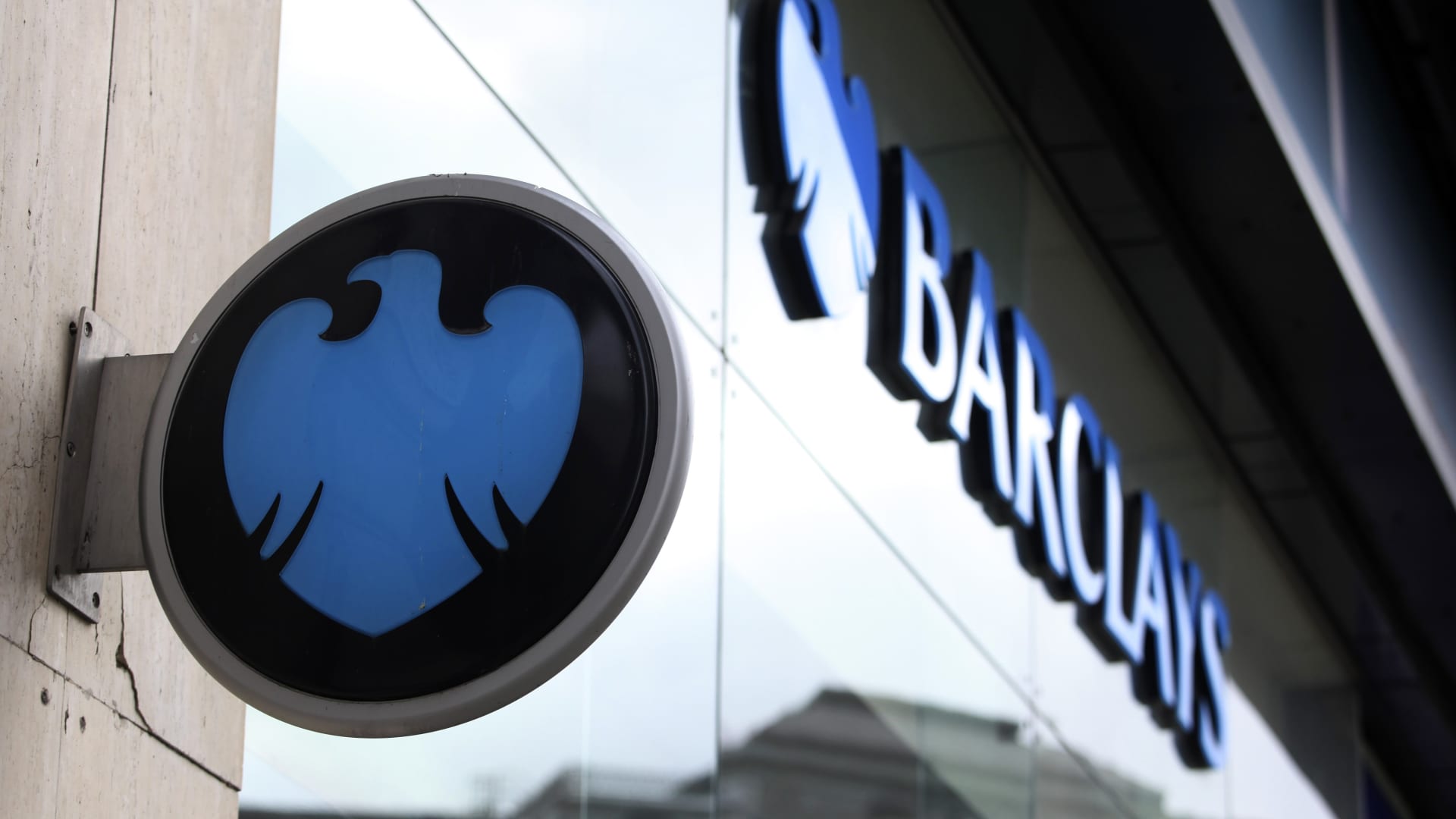
Chris Ratcliffe | Bloomberg | Getty Images
On Thursday, British financial institution Barclays reported an increase in its full-year pre-tax profit that slightly surpassed analyst predictions, while simultaneously announcing a £1 billion ($1.25 billion) share repurchase program.
The pre-tax profit surged by 24%, reaching £8.108 billion in 2024, which was just above the predicted figure of £8.081 billion, as per data from LSEG.
Net profit available to shareholders also grew by 24%, amounting to £5.316 billion in 2024, although it fell short of the anticipated £5.449 billion. In the fourth quarter, the attributable profit was recorded at £965 million, slightly below the £994 million expected by analysts for that timeframe.
The bank’s total income climbed to £6.96 billion in the last three months of December, compared to £5.6 billion in the fourth quarter of 2023. The main divisions at Barclays, including investment and retail banking, experienced significant year-over-year increases of 28% and 46%, reaching £2.61 billion and £2.62 billion respectively.
Over the past year, Barclays has been executing a strategic plan to reduce expenses by £2 billion by 2026, enhance returns for shareholders, and stabilize its financial performance. This strategy has emphasized the more lucrative consumer and lending sectors, leading to the integration of Tesco’s retail banking operations into its portfolio.
Moreover, Barclays’ robust banking division may gain from a potential increase in market share within the domestic arena, especially after HSBC disclosed last month its intent to exit its M&A and equity capital markets operations in Europe, the UK, and the US as part of broader restructuring of its investment banking segment.
Additionally, the bank is recovering from a significant three-day technological failure that disrupted various payment systems and transactions late last month, an issue that has since been resolved.
In a broader context, banks are facing challenges due to sluggishness in the UK economy and a decline in IPO activities on the London Stock Exchange. The Bank of England implemented its first interest rate cut of the year last week and signalled more cuts in 2025, amidst a downgrade in the UK’s economic outlook. Such monetary easing tends to squeeze bank profits by narrowing the gap between returns on loans and deposit payouts. Furthermore, British and European financial institutions are struggling to keep pace with their US counterparts, which might gain a competitive advantage if the newly inaugurated president adopts a more lenient regulatory approach.
Simultaneously, UK Finance Minister Rachel Reeves is urging the Financial Conduct Authority to foster competitiveness while ensuring consumer protections, with anticipation building for the upcoming Financial Services Growth and Competitiveness Strategy set to release in spring.
This breaking news is being updated.









